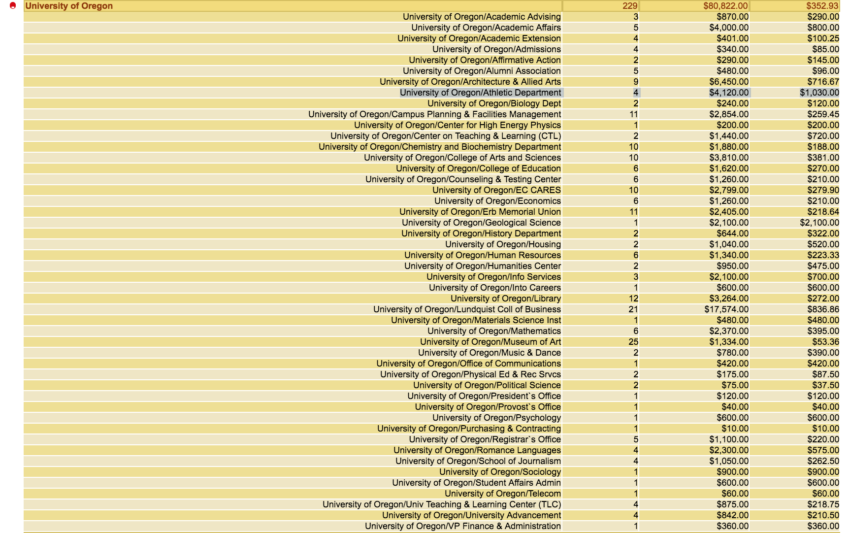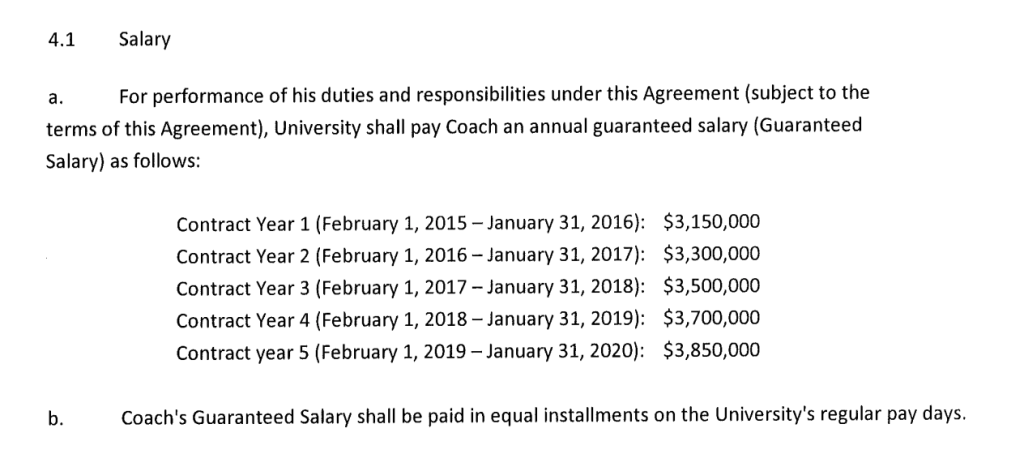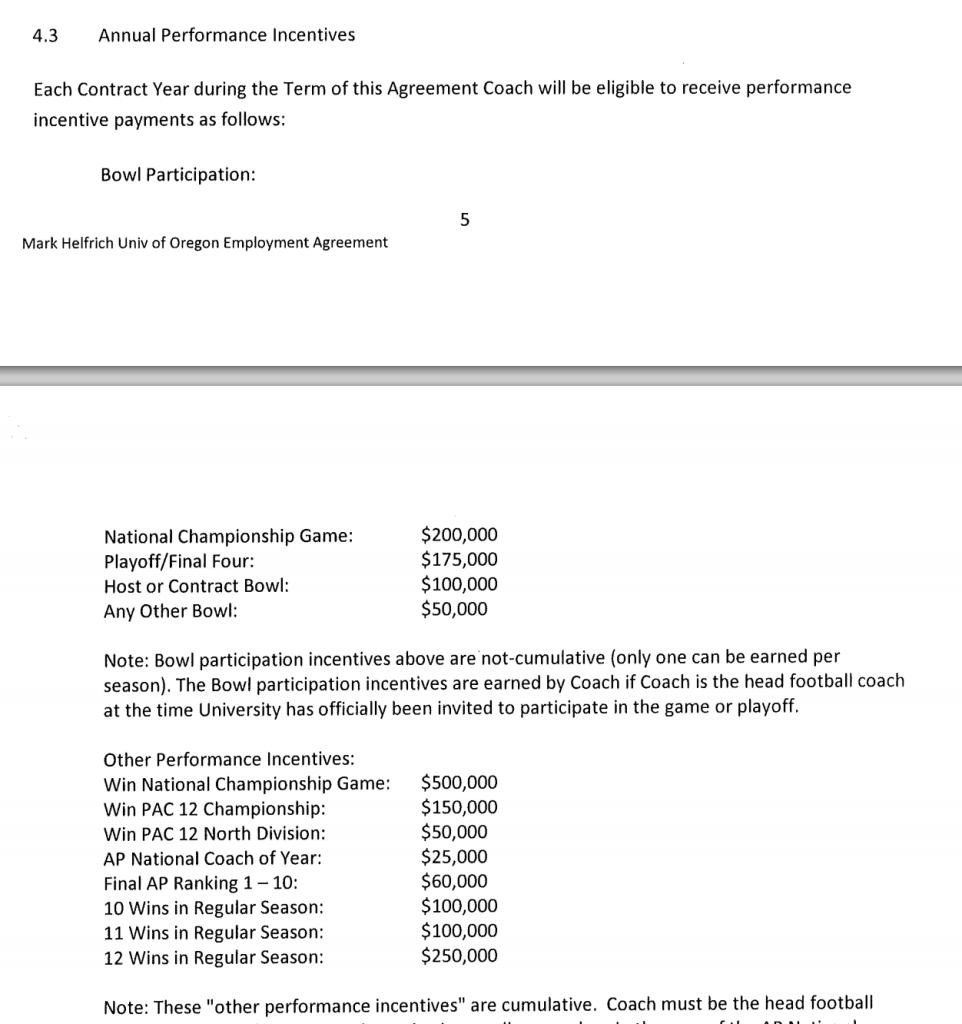We can only hope so. Under the porky contract that AD Rob Mullens negotiated, and Chuck Lillis and the UO Board of Trustees Executive Committee approved in Feb 2015, UO is still on the hook for $10M or so in salary payments to Helfrich, even though Mullens fired him last…
Posts tagged as “Mark Helfrich”
11/29/2016 update: The RG’s Ryan Thornburn has the shocking details here.
Or at least I think it was the basketball coach – he’s about to drop out of the rankings too. But maybe his buyout is next year.
Meanwhile, Mullens, Altman, Helfrich and the other well-paid Athletic Department employees haven’t been giving much to the University’s Charitable Fund Drive for state and community charities:

11/28/2016 update: Matt Helfrich wins excellent $9.4M buyout with lousy 34-44 Civil War loss
8/26/2016 update: Coach Helfrich has now declared the player guilty, and in doing so has committed a flagrant violation of Klinger’s interpretation of the accused’s FERPA rights. The Salem Statesman Journal reports: “[The student-athlete] has been suspended indefinitely for a violation of University and Department of Athletics codes of conduct,” Oregon coach Mark…
11/7/2015:
Apparently this win means the Ducks are going to some bowl game, and Helfrich gets a $50K bonus for that. Then we have to pay for all the admins and their families to go along for the junket. Here’s Tim Gleason, then Journalism Dean, now Faculty Athletics Representative, at the 2013 Fiesta Bowl student recruiting event:
VP for Enrollment Roger Thompson videotapes one or two humiliating events like this at every bowl game, so that the administrators can show the IRS there was a business purpose for their family’s holiday junket:

4/12/2015: Coach Helfrich’s raise totals more than all 1500 UO staff combined
UO has about 1500 staff workers, making an average wage of about $35,000 a year. Their SEIU local 503 is currently bargaining with OUS for a new contract. The OUS offer is an 0.5% COLA, or $175 each per year.
Meanwhile, the UO administration just found the money to give football coach Mark Helfrich a slightly larger raise:
Here’s the message from the SEIU local:
Higher Ed Management Proposals Not Unified Across State, Return to the “Big Three,” Attack Health Care, Steps, and More
10/10/2015: Apparently unaware of a basic statistical principle, Chuck Lillis and the BOT gave Mark Helfrich and AD Ron Mullens fat new contracts in February, just after the #2 BCS outcome. It will now cost about $15M to buy out Helfrich, although there’s a 50% discount if he doesn’t win at least six games in each of 2…
From the Chronicle, 4/19/2013: Nearly two-thirds of the 56 most powerful Division I public universities now offer multiyear awards, according to a Chronicle review of public records. Yet few of those institutions do so for more than a handful of athletes. Among the holdouts are some of the wealthiest programs,…
He’s got some high-powered incentives to encourage his “student-athletes” to take gut courses with inflated grades. Too bad AD Rob Mullens didn’t consult with UO’s Intercollegiate Athletics Committee about the likely academic consequences – this is now locked in for many years. Full contract here. 1/24/2013.



